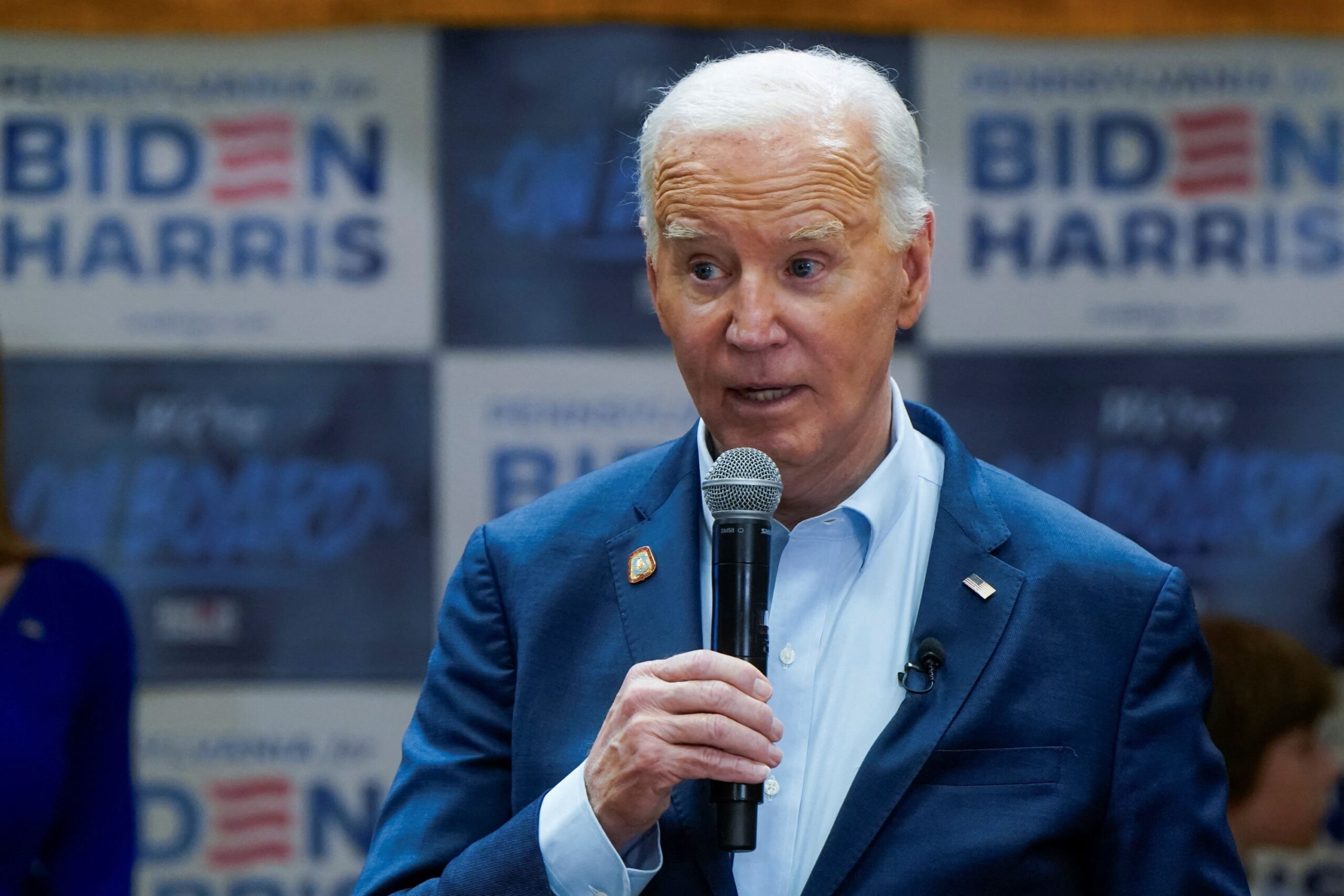President Joe Biden is set to urge his administration to intensify pressure on the Chinese steel industry during his economic competition speech in Pittsburgh, the epicenter of the American steel industry. This move forms part of his three-day campaign trail across the politically crucial state of Pennsylvania.
The domestic steel industry remains pivotal to the construction of everything from cars and appliances to roads and bridges. Biden has consistently emphasized investment in American manufacturing as a cornerstone of his economic policy, despite facing criticism over his handling of the economy.
On Tuesday, Biden made an economic pitch centered around tax policy and met with union workers in his hometown of Scranton. He is scheduled to travel to Philadelphia for campaign events on Thursday, creating a stark contrast with former President Donald Trump, who is spending much of his week in a New York City courtroom for a criminal trial.
Speaking from United Steelworkers headquarters on Wednesday, Biden will urge United States Trade Representative Katherine Tai to consider tripling the existing 7.5% tariff rate on Chinese steel and aluminum. This move is pending the conclusion of a four-year review of the Section 301 tariff rate.
Officials anticipate the ongoing review to be completed soon, and Tai could take action to enhance the effectiveness of the tariffs based on its findings, according to a senior official. National Economic Council director Lael Brainard described Biden’s call as strategic, balanced, and targeted, aiming to protect the US from China’s attempts to undermine domestic steel manufacturing.
Biden will also spotlight the Department of Commerce’s efforts to counter China’s attempts to flood the market with cheap products through anti-dumping and countervailing duties, among other measures.
This trip follows Biden’s public opposition last month to a controversial $14 billion deal for Japan’s Nippon Steel to purchase US Steel. Despite approval from US Steel shareholders, the deal still requires approval from the Justice Department and the Committee on Foreign Investment in the United States.
Officials dismissed concerns that the potential tariffs could lead to additional inflation. They argued that these actions will not increase inflation but will protect American jobs and the steel industry. They further suggested that there will be no impact on inflation at all.
However, it is worth noting that US consumers will ultimately bear the cost of any tariffs on imports, which can lead to increased prices. The United Steelworkers, a key union representing workers in the steel industry, endorsed Biden’s reelection campaign last month.
Biden’s push in Pennsylvania comes as he seeks to improve his standing with voters who continue to express dissatisfaction with his handling of the economy. Recent polls have shown a close race between Biden and Trump with less than seven months to Election Day.
Trump made tariffs against China a central feature of his global economic strategy, and Biden has largely maintained them, despite external criticism. By calling for a tariff hike, Biden also appears to be attempting to shield himself from Trump’s criticism that he’s weak on China.
A new tariff hike could jeopardize Biden’s attempts at mending what has been a strained relationship between the world’s two largest economies. China has denied accusations of overcapacity and claims the US is seeking to stifle competition through protectionist trade policies.
Biden has sought in recent months to stabilize a fraught relationship with China, including in direct conversations with President Xi Jinping. The efforts appeared to bear fruit this week when Defense Secretary Lloyd Austin spoke with his counterpart for the first time in a year.
CORRECTION: This story has been updated to correct the location of where Biden will deliver his remarks on Wednesday. CNN’s Chris Isidore, Arlette Saenz and Kevin Liptak contributed to this report.

